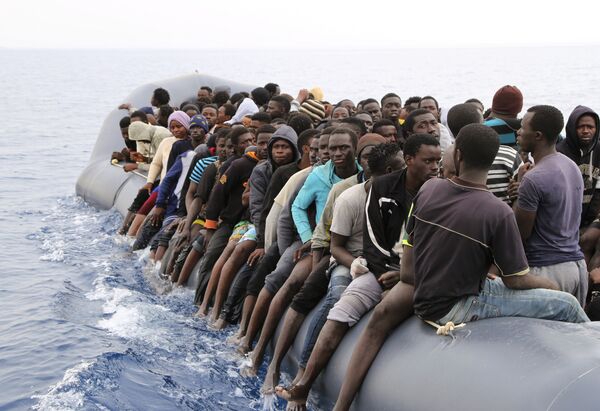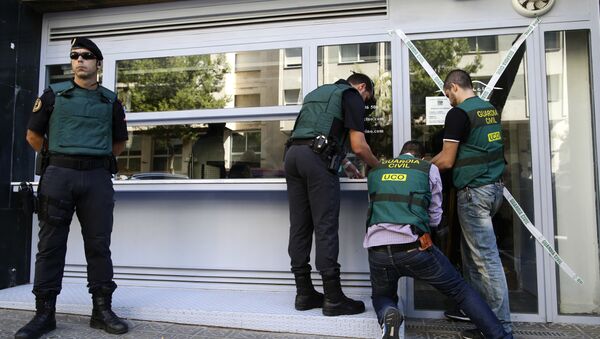Among those who were given fake passports was a five-year-old boy.
#MIGRANTSMUGGLING: Spanish @policia break up ring smuggling Iranians to the UK, supported by @metpoliceuk & Europol https://t.co/2aniJGwPHR pic.twitter.com/WduQVAp7he
— Europol (@Europol) 3 August 2017
The beginning of the end for the gang was when seven Iranians were caught carrying the same fake passports while trying to board a flight from Hamburg to London.
The alleged leader of the gang was arrested at Heathrow on Thursday (August 3) as he tried to flee to Brazil via Dubai.
Fourteen gang members were arrested in Malaga and 42 people were detained, accused of selling their Spanish passports for up to 3,000 euros (US$3,500) to the gang to enable them to be copied and counterfeited.
One line of investigation is understood to be whether the gang used a notorious passport forger, Iranian Hamid Reza Jafary, known as The Doctor, who was arrested in Thailand in 2016.

Every year thousands of migrants try to get into the European Union, many of them by crossing the Mediterranean on flimsy boats.
The operation was led by the Spanish National Police, supported by the UK's Immigration Enforcement agency, the Portuguese Immigration and Borders Service SEF, and Europol.
#MIGRANTSMUGGLING OPERATION: 101 arrests
— Europol (@Europol) 3 August 2017
Watch the moment @policia, supported by Europol, arrested the suspects in 🇪🇸https://t.co/2aniJGwPHR pic.twitter.com/6DJT8XZ2ko
The gang supplied fake Spanish passports to Iranian nationals who would then fly into Spain and onto other destinations, including Britain.
Police seized 30 authentic Iranian passports and 10 real Spanish passports, computers, printers, 400 blank ID cards and several guns during the operation.
Europol said the investigation began when the seven Iranians were detained at Hamburg with bogus Spanish passports.
It emerged that their tickets had all been booked through the same travel agency in Malaga.
Investigations in that city led to the discovery of the migrant smuggling network.
"The criminal group was perfectly structured and each member had a defined role, ranging from recruiting the irregular migrants in their country of origin, to facilitating the transfers, hosting them in safe houses in Spain, and supplying the travel documents," said Europol.
A Europol spokesman said it was believed the gang may have trafficked around 200 Iranians a year into the UK and other EU countries.
It is not clear how long they had been operating for or how the authorities will seek to track down those people who successfully made it into the EU before the network was discovered.
Last year two men were jailed in Britain for smuggling people across the English Channel for money.


